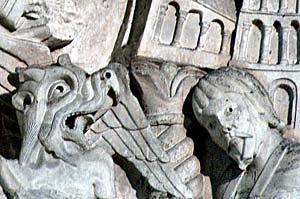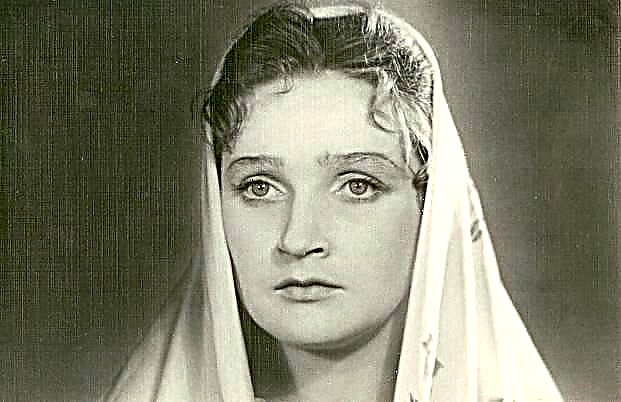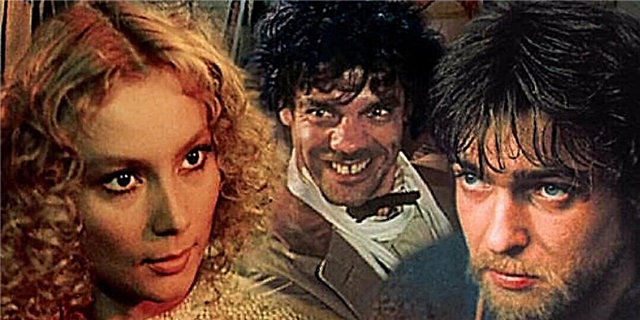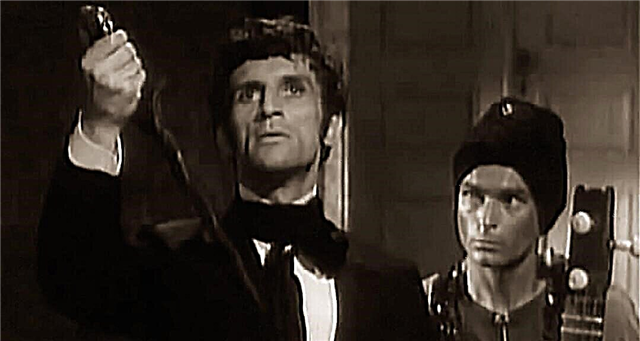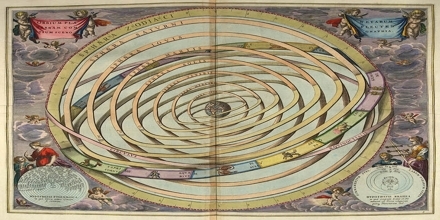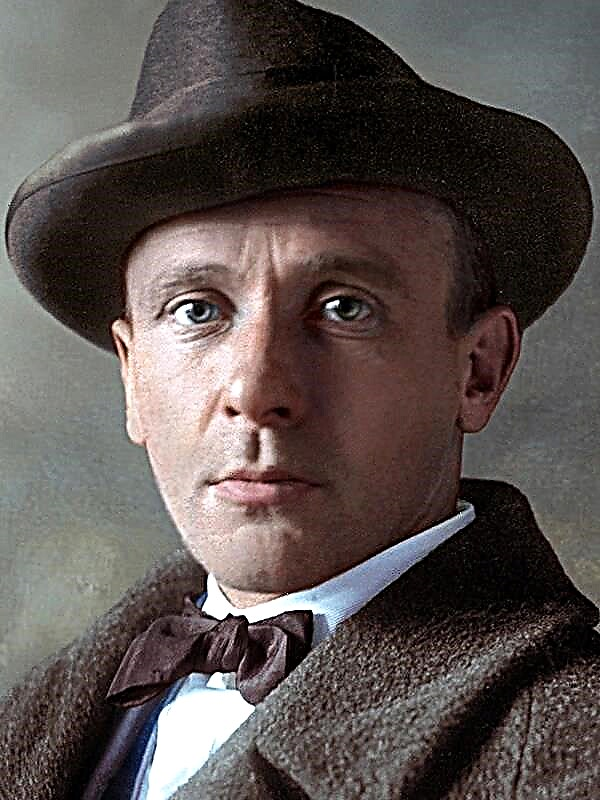Share
Pin
Tweet
Send
Share
Send
Here we have selected for you the popular problems regarding lies from texts for preparing for the Unified State Exam in Russian. The arguments revealing them are selected from Russian literature. You can download all this in a table format at the end of the article or read them directly on this page with convenient navigation on problematic issues.
Lies for the good
- One of the central themes in Gorky's play “At the Bottom” is the problem of "lying for the good." Thus, Luke and Sateen present two opposing points of view: to tell the truth, despite spiritual torment, or to lie, but with intent, which implies compassion for "your neighbor." The preacher consoled the inhabitants of the rooming house, gave them hope, albeit not supported by real reasons. But the sharpie was opposed to such a false healing, he was telling the truth face to face, not thinking about how the interlocutor would accept it. In his opinion, a real person must live with his eyes open, without illusions. Since Luke, with his philosophy, capitulated and left those who believed him to their fate, we conclude that the author is on the side of Sateen, that is, a lie cannot be justified by good.
- Sometimes in life there are situations that involve the existence of lies to save yourself or a loved one. A.S. Pushkin in the novel "The Captain's Daughter" contrasts ordinary deception with a “lie for the good,” which helped Masha Grineva escape from Emelyan Pugachev. If not for the tricky move of Peter Grinev, an innocent girl could have been executed. Each of us must distinguish between cases where a twist of the soul - this means saving a person from terrible misfortune. Then we can go against the truth. But in other situations, when it comes to personal gain, this trick is immoral and borders on a moral crime.
- Comedy A.S. Griboedova "Woe from Wit" also includes the theme of pretense and deception. The main character assumes the existence of a lie, but only in those cases when it is necessary to save true love. So, for example, Sofya deceives Famusov to secretly meet with his secretary. Her intentions are pure, but with this cryvodusi the girl approaches the hypocritical way of life of that society, whose manners are far from ideal. Her feeling turns out to be exposed by illusion, her knight is an ordinary fraudster, and her lie is the first step in the secular world of falsity and deception. So even “lying for good” does not lead to good, because a person can not always figure out what is good.
False values
- False values - a boat without a life buoy. Victims of circumstances suffer from the fact that they did not realize their own mistake in time. Sofia Pavlovna - the main character comedies A.S. Griboedova "Woe from Wit" - is a "hostage" of their own beliefs. So, Sophia’s ideal is a modest Molchalin, while Chatsky, who loves her all his life, is a man of “not her type”. The collapse of her hopes for a future together with her father’s secretary collapses after she learns about Molchalin’s non-reciprocal feelings. This becomes a real tragedy, with which Sofia cannot cope due to her shock. Alas, her values turned out to be extracts from vulgar novels, and not real truths guiding a person.
- Often false values can play a "cruel joke" with the whole society. For example, in the comedy of N. Gogol "The Examiner" people are used to building their own future on greed, hypocrisy, and self-interest. They were engaged in embezzlement for many years. Their desire to appear before the auditor in the role of respectable managers is an opportunity to preserve their place, but, having given their savings to the impostor, they were captured by their own values. Because of them, they fell into a comic situation that turned into a complete failure for them.
- A.S. Pushkin in the novel "The Captain's Daughter" contrasts false values with morality. So, for example, Pyotr Grinev did not tarnish his honor even when he was threatened with execution. The same cannot be said about Schwabrin, who went over his head for personal wealth - this suggests that false values kill everything in a person that connects him with people. Alexey went along the path of egoism and came to the collapse of desires and hopes, because society turned away from him.
The problem of hypocrisy
- One and the same person can contain both virtue and commercialism, but what exactly prevails in it? F. tried to answer this question. Dostoevsky in the novel Crime and Punishment, where Pyotr Luzhin simply plays the role of a “decent man”, while in reality he is “low and nasty”. His desire to marry on the Danube is not explained by "love", but by the desire to have a supple wife who will reverence his every word. However, he strenuously pretends that this is not so. The hypocrisy and meanness in his behavior, fortunately, were seen before the fateful mistake of Duni, so Peter was expelled with shame.
- In the story of A. Chekhov “Tears of a crocodile” we can see both hypocrisy and duplicity. The main character, Polycarp Judin, “suffers” from the injustice of the life of poor people, while he himself strips them to the last strand. “Crocodile tears” is a consistent expression that means the grief of an insincere person such as Judah. His behavior cannot be justified in any way.
- Externally wealthy people from a material point of view may not be as “wealthy” in the soul. Speaks about it L. Tolstoy in the novel "War and Peace"where Prince Vasily does everything based on his own benefit. Even coming to Anna Pavlovna did not mean “secular politeness”, but the possibility of arranging her children. He deceives Pierre, nearly robbed him, miraculously not having time to intercept the will of the old count. But in words the hero is always exquisitely courteous and kind, he has a high position and good reputation.
Pangs of conscience
- The problem of remorse due to the said lies is clearly traced in the story of V. Astafyev “Horse with a pink mane”. The main character - a boy Vitya - must collect a basket of berries to get the cherished gingerbread, but the guys persuade him to collect grass and put berries on top. The boy is tormented by conscience for a long time, and he decides to confess to a deliberate lie - this suggests that Victor is capable of recognizing his own mistake, and this is an undoubted step towards the “highest moral ideal”.
- A similar example can be seen on the pages the story of V. Bykov “Sotnikov”. Throughout the story, the author introduces us to several characters, and here one of them recalls the case with his father's Mauser, from which he shot. Having acknowledged the mistake, he still feels remorse over the lie that the mother, and not his desire, prompted him to the "truth".
Consequences of a lie
- A similar example can be found on the pages of the novel. M.Yu. Lermontova "Hero of our time"where Grushnitsky’s slander against Princess Mary for revenge to Pechorin dissolves in justice. Having decided to change the weapon of a duelist, a dishonorable man becomes exposed. Gregory realized that a friend wants to fraudulently win the battle. Then the inactive weapon goes to the deceiver himself. Grushnitsky dies, and Pechorin draws disappointing conclusions.
- In the play by A. Ostrovsky “Dowry” the main character wants to deceive herself by marrying an unloved person. She becomes his bride, mechanically preparing for an unwanted wedding. However, at the engagement dinner, she is again embraced by Paratov’s attraction, which invites Larisa to the Swallow. She throws her obligations and goes sailing towards death. The next morning, the insulted bridegroom killed her, and she could only thank him for this, because she was disgraced and abandoned to her fate. Alas, it is impossible to build happiness on lies.
Share
Pin
Tweet
Send
Share
Send



